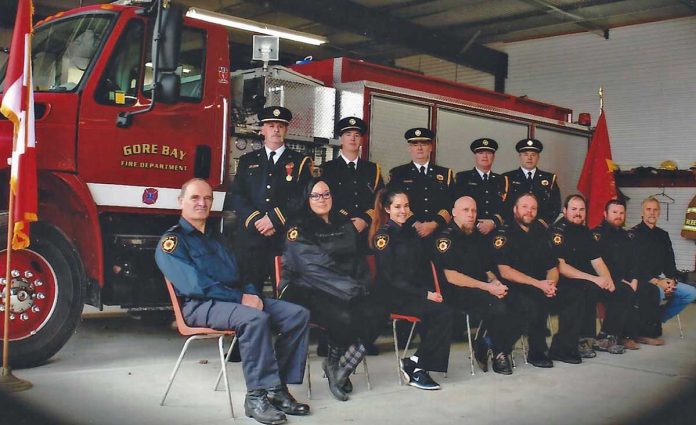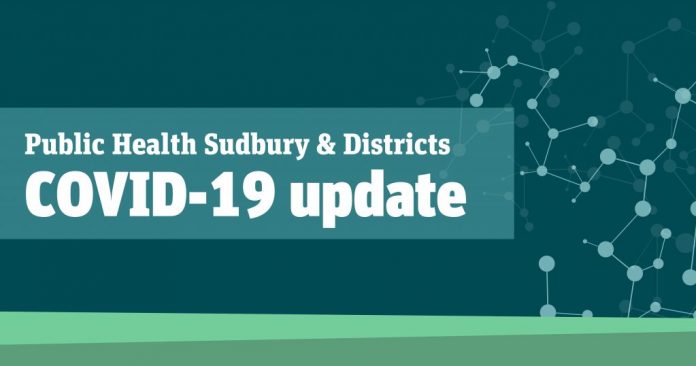They are worried and ask that you please stay home
Physicians, nurse practitioners, traditional healers, midwives and physician-assistants across the District of Manitoulin are worried. This year, we want you to stay at home.
We recognize that many people have chosen to come to their seasonal residences or have packed up their campers or trailers to visit. Many people are also fearful in this time of the COVID-19 pandemic.
Manitoulin is a beautiful place and we all love it. You may have strong deep ties to the Island. People have retreated to rural areas as a place of safety during pandemics for hundreds of years. The problem is, that plan isn’t as safe as you think it is, and that worries us.
People who live in rural areas all year long are used to dealing with the challenges of rural health care. Rural residents are used to the idea that, like in many other rural areas, we have limited hospital beds and it takes a two- or three-hour drive to get advanced testing or consultations. Resources for services in our region—hospital, clinics and home care—are based on our permanent population not our seasonally expanded population. Even with planning for a doubling in population last summer, physicians, nurse practitioners and physician assistants were stretched by the volumes of people coming through the ER.
Every summer, visitors are surprised by our rural resources. So, we would like you to know what we do have and don’t have, so that there are no surprises.
We have one hospital on two sites, Little Current and Mindemoya. We have a total of 32 inpatient beds between them and six beds in each ER with one ER resuscitation room at each site. We do not have an ICU and cannot keep people on ventilators.
We are rural family physicians, nurse practitioners and physician-assistants who work in the ER, the hospital and in our clinics. There is typically one physician in the ER per shift, seven days a week. There are no other specialists on the Island, but we can talk to them on the phone, or sometimes over a video conference.
We can process some lab work locally on Manitoulin but many of our tests go to Sudbury for processing, including COVID-19 tests. We don’t have a CT scanner or an MRI.
We have two transport ventilators for the hospital, and thanks to the generosity of many community partners we expect that more will arrive soon.
The teams at the Manitoulin Health Centre where many of us work, are busy planning for a major surge. We work with knowledgeable, hard-working and compassionate people in the hospital, in clinics, in First Nations communities, as paramedics with EMS and in nursing homes. Our community leaders are planning and making tough decisions. Volunteers are stepping in to keep the most vulnerable safe. All of us are doing the best with what we’ve got. All of us are working hard to get ready for the pandemic. These are extraordinary and unprecedented times.
Some people who have come to the Island plan to drive home if they do start to feel sick. But often patients with COVID-19 go from feeling “a little bit off” to being severely unwell very quickly, so those plans may not work out so well.
When patients need to be put on a ventilator in a larger hospital, they are an elevator ride from the ER to an ICU bed. When patients on Manitoulin have needed to be put on a transport ventilator in the past, whether due to severe injury or severe infections, it was typically at least three to six hours before they left by road or air ambulance to go to a larger hospital. We know that as COVID-19 hits Northern Ontario harder, that emergency transportation will become a greater problem than normal. This means our future patients might be on a transport ventilator for 12 hours or more before leaving our hospital to start the journey by land or air ambulance to an ICU bed.
We are worried because we know that we already have a vulnerable permanent population. In the Manitoulin District the rates of diabetes and heart disease are much higher than in the rest of Ontario. We know that having other health conditions like these make people at increased risk of getting severe symptoms from COVID-19.
We are worried because every year, death rates from the seasonal flu around the world are highest in the smaller and more rural communities. We expect that COVID-19 will be no different.
We need you to know that pandemics still hit rural areas. They hit later, and they hit harder. And in places with high seasonal housing, they hit the hardest of all. Recent data from New Hampshire examined rural and urban COVID-19 rates. The rural counties with high proportions of seasonal housing, including vacation homes, average cases of COVID-19 per 100,000 are twice as high as in other rural places and 15 percent higher than in urban areas.
We are worried because that combination of a vulnerable population and high numbers of seasonal residents in the face of COVID-19 looks like a perfect storm to overwhelm our rural resources.
In a normal year, the citizens of Manitoulin would be getting ready to welcome tourists and seasonal visitors to Manitoulin, as so many businesses depend upon you. Many of you are our friends and family. We would be sharing the beauty of the Island and its local amenities. But this year is uniquely different, and we must adapt. All outdoor recreational amenities have been closed through the Emergency Management and Civil Protection Act earlier this month, so this is also not the Manitoulin District that you would usually experience.
We recognize that there may be exceptional circumstances. We know that some of you provide essential services to remote communities on the Island, through your work with the volunteer fire departments, and we know that you will face additional risks this year through that work, and we thank you for joining us. Those communities continue to rely upon you.
We have been asking all of our patients to stay safe: keep physical distancing, continue thorough handwashing and to stay away from high risk activities like climbing ladders, driving ATVs and motorbikes. We care for all the patients who come to us with skill, knowledge and compassion, but we are worried that a pandemic combined with an influx of people will create that perfect storm.
So, as clinicians on the frontlines, we ask that you reconsider your travel plans. If you have a home elsewhere in Ontario where you have access to a city hospital, please stay there, or plan to return there as soon as you are able. Please make plans to join us when the pandemic is over.
Stay safe and stay well,
The physicians, nurse practitioners, traditional healers, midwives and physician-assistants of Manitoulin Island





